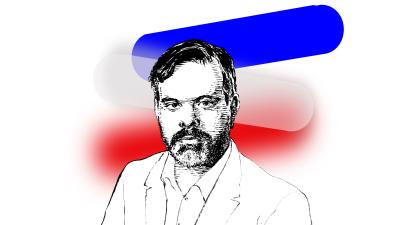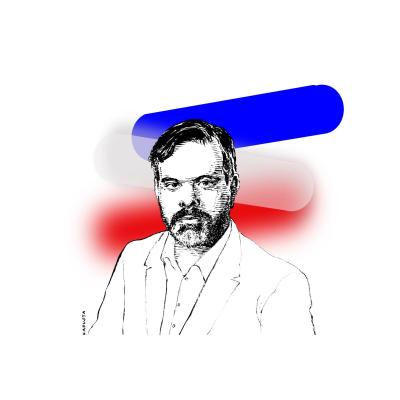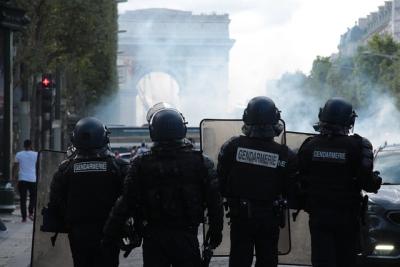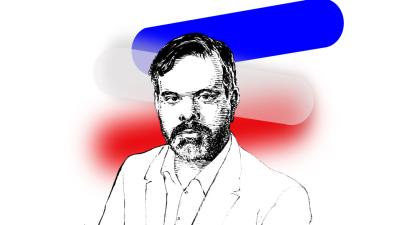The affair “Yvan Colonna”, named after the Corsican pro-independence activist found guilty of the assassination of prefect Claude Érignac, is strange in several aspects.
Apart from the fact that Colonna’s arrest and death helped Presidents Sarkozy and Macron at key moments, the rule of law was absent throughout the investigation leading to Yvan Colonna's arrest and death. At no time did the Parisian media (which only allows itself to stigmatise two categories of the French population: Corsicans and Catholics) doubt the criminal responsibility of this Corsican shepherd, declared guilty by the then Minister of the Interior, even though no trial had taken place. Colonna was killed in prison by an Islamic terrorist known for his dangerousness: The prison administration had left Colonna alone with that terrorist for nearly 20 minutes, during which he was savagely attacked when hidden from view and the cameras. This never ceased to raise questions – especially when we learn that evidence has been deleted from the files.
In 1998, the assassination of Prefect Érignac by Corsican independence fighters provoked considerable emotion and deep disapproval in Corsica. The government, instead of taking advantage of this rare moment of national unity, established a repressive climate on the island of Beauty. Anyone who might have the slightest link with the affair was arrested, and a regime of exception was put in place. The new prefect at the time went so far as to order the police to pose as independents and to burn down a restaurant on the seafront. Corsicans were to remain under investigation for years, even though they had nothing to do with the affair. Almost 1% of Corsicans were arrested: On the mainland, this proportion would mean more than half a million French people arrested…
In 2003, Nicolas Sarkozy, then Minister of the Interior, in the midst of winning back the right-wing electorate and preparing for the 2007 presidential election, announced in public: "The French police have just arrested Yvan Colonna, the assassin of Prefect Érignac". While no trial of Yvan Colonna had yet taken place, a Minister of the Interior and future President of the Republic designated the man for popular vindication. This infringement of the presumption of innocence could only have serious consequences for the reliability of police testimony and behaviour of the magistrates. From then on, it became very difficult for any police officer to doubt the word of his minister. How can one imagine that a man like Nicolas Sarkozy would not do everything possible to prevent himself from being disowned in the middle of an electoral campaign?
The three trials of Yvan Colonna, who has relentlessly maintained his innocence, have revealed above all the absence of material evidence of his guilt. Yvan Colonna's convictions are based on the testimony of the members of the Corsican independence commando responsible for the assassination of Prefect Érignac and on the inner conviction of the police officers who investigated him. However, members of the commando clearly lied and the police were under the influence of their hierarchy. It should be remembered that at that time, the police was under enormous pressure from the government, which wanted results at all costs. Within 24 hours, by intimidating the suspects, who were under threat of not seeing their children, the investigators obtained the necessary confessions. Yvan Colonna was designated by the prisoners and their wives as the third member of the commando. Apart from the fact that they will withdraw all their accusations once they are free, their testimonies obtained under pressure are not corroborated - so much so that they show that the people who named Yvan Colonna as a member of the commando were all lying.
Witnesses of the murder clearly state that the assassin they saw shooting was not Yvan Colonna. On the other hand, other witnesses saw Yvan Colonna in Cargèse on the evening of the assassination. A ballistics expert, based on the observations of the forensic doctor, shows that the killer was necessarily taller than the prefect, whereas Yvan Colonna was ten centimetres shorter. And these are only the most obvious examples, which are the simplest to explain. However, there are also dozens of others that raise questions about the guilt of Yvan Colonna, who has always and without respite claimed his innocence, for 24 years.
During all his years of detention, he was refused any contact with his family in Corsica - which on the one hand may be understandable, given the seriousness of the execution of which he was judged guilty. Yet on the other hand it condemned his parents, his wife and his children, who had nothing to do with the assassination, to making long journeys to the continent to visit him. Above all, this implacability of the French justice system, usually known for its laxity, has been particularly exceptional, especially when compared with the treatment of the 36-year-old psychopathic jihadist who, at the age of 62, atrociously murdered Yvan Colonna after 20 years in prison.
Franck Elong Abé, the assassin of Yvan Colonna, is a Cameroonian arrested by the international coalition in October 2012 in Afghanistan where he was training in the handling of weapons and explosives and taking part in close combat. In May 2014, he was handed over to France by the Americans. A few months later, in detention in France, when transferred to a hospital-prison after a suicide attempt he tried to escape after threatening a young psychiatric intern with a sharp object. Then he tried to set fire to his cell 14 times. After a new conviction, he was transferred to Arles (Yvan Colonna's prison), where instead of being put in a radicalisation assessment unit (QER), he was given a job, normally reserved for exemplary prisoners. This allowed him relative freedom of movement in the prison. despite the fact that he was considered one of the 50 most dangerous jihadists in prison. In addition, there were five recommendations of interdisciplinary commissions to place him in the ERQ. Given his status of a detainee for Islamic terrorism, Franck Elong Abé could not have been subjected to the ordinary detention regime and benefit from an auxiliary job, as was the case. But this is only the beginning of a long list of incredible mistakes made by the French prison administration.
The day before the assassination, a female prison officer warned her hierarchy that she had overheard a conversation between three prisoners, including Franck Elong Abé, in which the phrase "I'm going to kill him" appeared. This supervisor noted the same day that she had caught the jihadist tidying his cell, as if he was going to leave it. When asked why he was doing this, he replied: "I'm clearing the air". These two observations by the guard are absent from the data provided by the prison administration and were not mentioned during the hearings of the parliamentary commission of enquiry into the assassination. Nor were they found in the data processing software where prison officers note their observations on prisoners under special supervision (DPS), which was Franck Elong Abé's status – though the officer ensures that she has entered that data. According to the president of the mentioned commission, the nationalist deputy of Haute-Corse Jean-Félix Acquaviva, there is no longer any notation on Franck Elong Abé a month earlier. An "abnormal" absence according to the deputy because there were "four to six per month" beforehand. Still according to Jean-Félix Acquaviva: "We have the biggest questions (...) about the possible attempt to erase this data. (...) This information (...) should have led to even more attention being paid to the surveillance of the individual and to avoiding the tragedy of the following day.”
According to information from the investigating committee and the judiciary, Yvan Colonna was left alone in a room with the Islamist terrorist for nearly 20 minutes, even though both had the status of "particularly high-profile detainees" (DPS). Alone in the weight room, which the jihadist was responsible for cleaning, where the camera was not set up so that video surveillance could show what was going on. And during that time Yvan Colonna was severely beaten, strangled for a long time and suffocated with plastic bags and towels.
In 2022, at the same time as the assassination of Yvan Colonna, the weekly newspaper Le Canard Enchaîné reported that the President of the Republic had concluded a secret agreement with the Corsican autonomists for the "Corsican political prisoners" to be transferred to the island. The political authorities had always refused to do this, for the transfer of Yvan Colonna to Corsica was too politically dangerous because of the wave of indignation and protests it would provoke. During the hearings of the parliamentary commission, former deputies François Pupponi and Bruno Questel (who were facilitators in the negotiations between the government and the Corsican nationalists at the time of the events) revealed that Emmanuel Macron had unofficially committed himself to bringing the last three detainees of the Erignac commando to Corsica after the presidential election.
According to the president of the parliamentary commission of enquiry, the president of the French Republic did not, of course, order the assassination, but strongly emphasised the "state hatred" towards Yvan Colonna. In support of his statement, the deputy revealed that he was aware of messages exchanged by prefects in office stating that the terrorist Franck Elong Abé should be decorated for his violent crime. In any case, what is certain is that the rule of law and the "values of the Republic" have been absent throughout the entire "Colonna affair".
Read also
The juicy business of pro-Russian influencers made possible by the mass media
On social networks, it's easier to gain an audience than to make money. There are a number of solutions for monetising the audience - some more ethical than others.
Patrick Edery
In France, police violence has become systemic since Emmanuel Macron came to power
If you ask a French person if they are going to demonstrate - a commonplace act in any democracy - it is not uncommon for them to reply that they prefer not to take any risks, so virulent has the policing of demonstrations become.
Patrick Edery
Questions from Poles to a Frenchman ahead of their referendum on immigration
In the eastern countries of the EU, France has become the poster child of what not to do when it comes to immigration.
Patrick Edery
The Worrying State of Pluralism in the French Media
The French press likes to give lessons on democracy, European values and the rule of law. Yet France is certainly one of the democracies where the lack of pluralism, the almost totalitarian unanimity of the media, is most worrying. French journalists are very concerned about press freedom in Poland, but in that country, 2/3 of the mass media are against the government and fire red-hot bullets at it every day.














Comments (0)